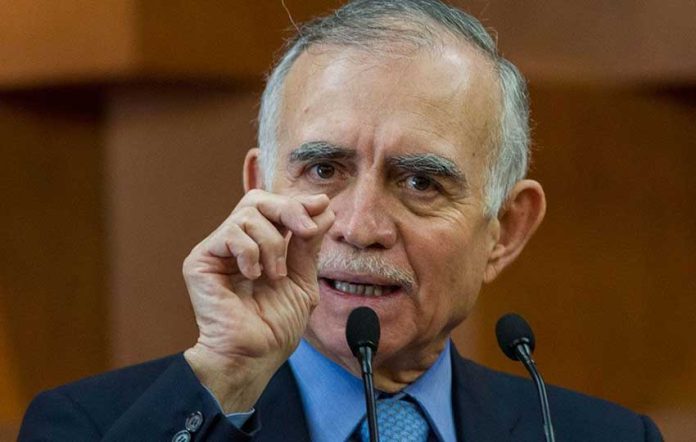Mexico must aim to attract between US $35 and $40 billion annually in foreign direct investment (FDI) in order to stimulate economic growth, the president’s chief of staff said yesterday.
Speaking at a forum on the National Development Plan (PND), Alfonso Romo described the 2% growth of recent years as “an embarrassment.”
Consequently, the plan – a wide-ranging public policy blueprint – will seek to attract greater capital in order to make Mexico more competitive, he said.
“We can’t be conformist or become accustomed to inertia. Rather we have to see what we have to do in the plan to bring $35 billion or $40 billion [into the country],” Romo said.
In 2013, the first full year of Enrique Peña Nieto’s presidency, FDI spiked to US $48.5 billion but in the subsequent five years it ranged between US $29.5 billion and US $35.8 billion.
To ensure that Mexico achieves higher economic growth – President López Obrador is targeting 4% – Romo said the government needs the nation’s productive sectors to help define the PND.
“We don’t know the sectors like you know them,” the official said, signaling that the PND will be developed via a bottom-up approach.
Foreign trade undersecretary Luz María de la Mora also emphasized that the PND must aim to attract greater investment.
“Mexico is an important [economic] actor, contributing 2% of exports on a global scale and [receiving] 2% of foreign direct investment. We want to increase that participation, for Mexico to join the trillion-dollar foreign trade club . . . because we have the potential to do so,” she said.
Economy Secretary Graciela Márquez Colín called on the private sector to help build a strategic economic agenda that guides public policy in the medium and long term.
The PND will be a “roadmap” for the entire six-year term of the current government, she said.
Márquez also said that negotiations with the United States aimed at the removal of U.S. tariffs on Mexican steel and aluminum are progressing well.
“. . . We believe that there is an opportunity to negotiate the elimination of the tariffs on steel and aluminum before the ratification of the USMCA [trade agreement].”
Responding to the officials’ statements, Business Coordinating Council (CCE) president Carlos Salazar said the private sector hoped for a PND that would benefit all Mexicans, adding that priority must be given to “access to opportunities.”
Yesterday’s forum came two days after López Obrador outlined the government’s achievements in its first 100 days in office and reiterated his commitment to achieve annual economic growth of 4% during his six-year term.
The president asserted that the government’s crackdown on corruption would help to attract investment, and that infrastructure projects such as the Maya Train will help to stimulate growth.
But a range of public and private financial institutions see López Obrador’s 4% growth target as fanciful, forecasting economic expansion of just half that figure or less.
